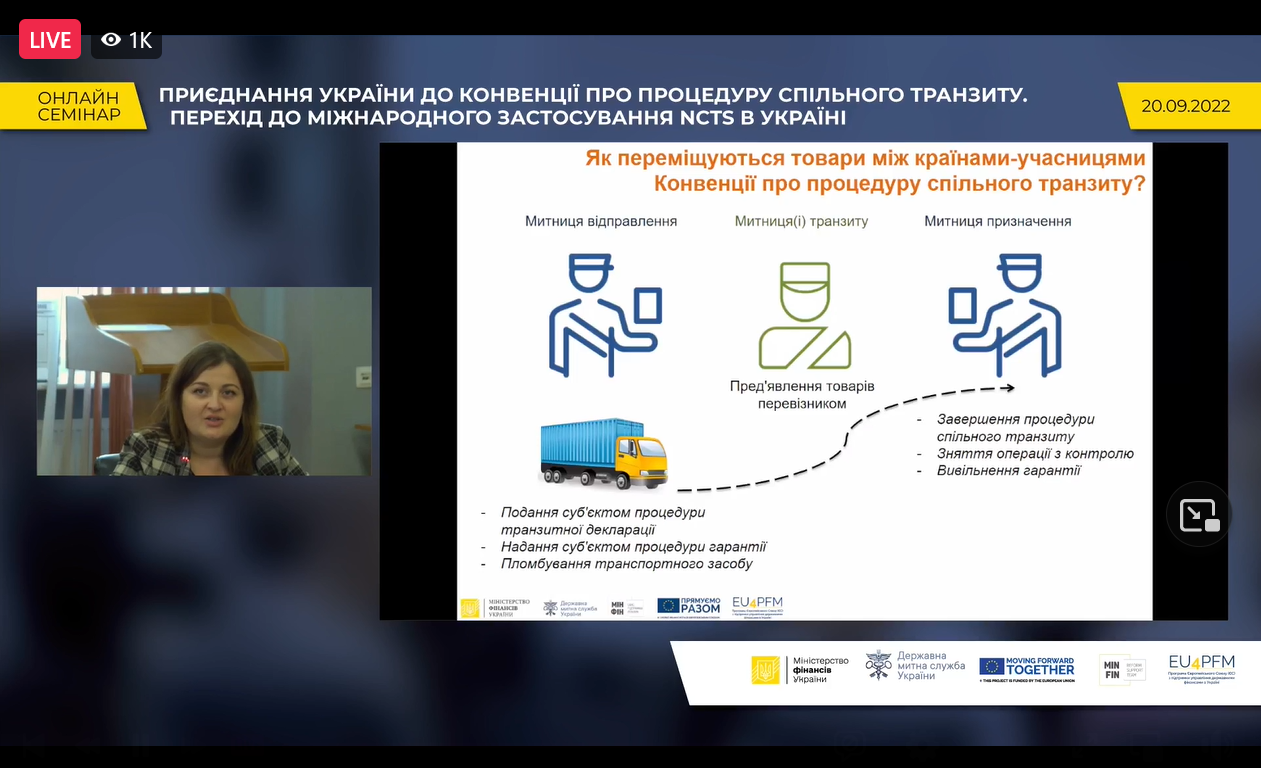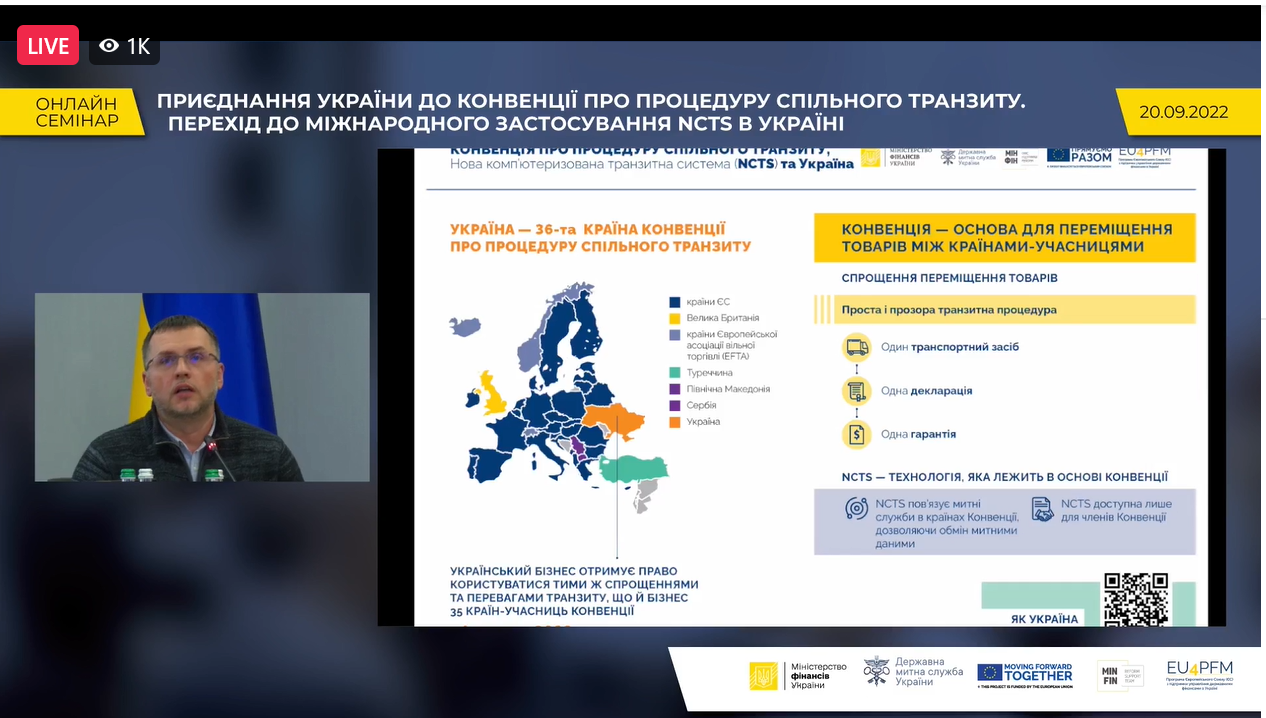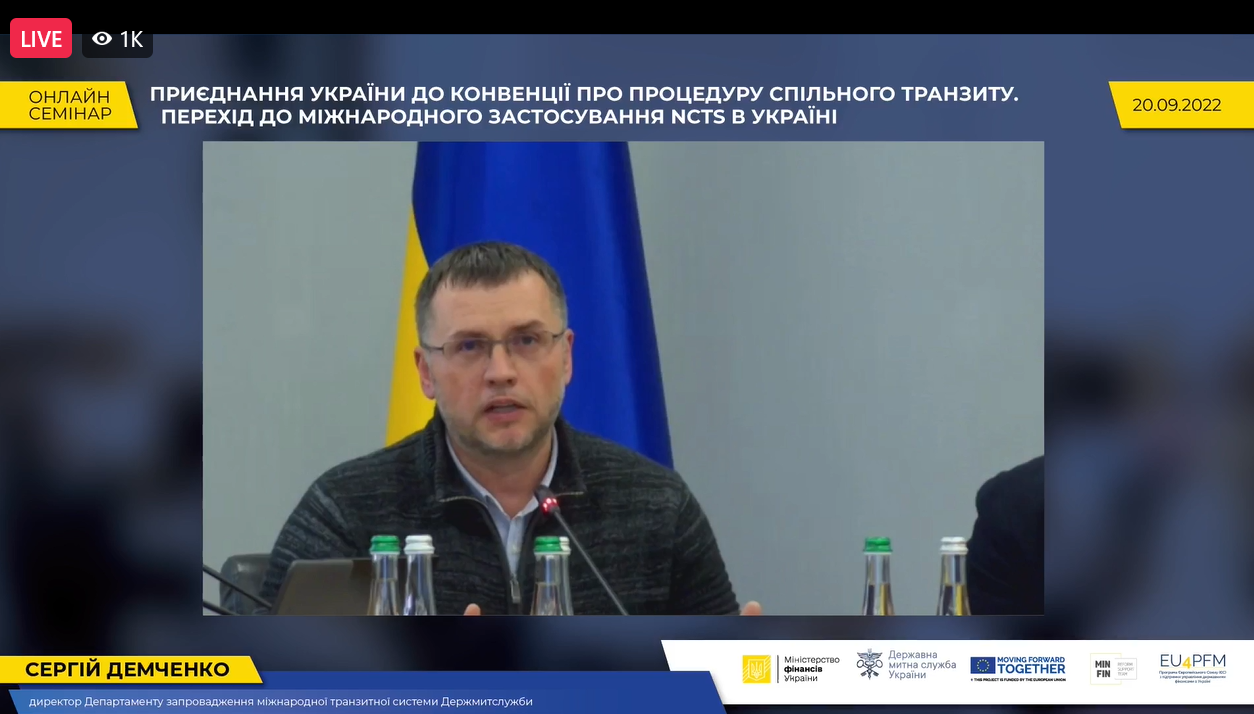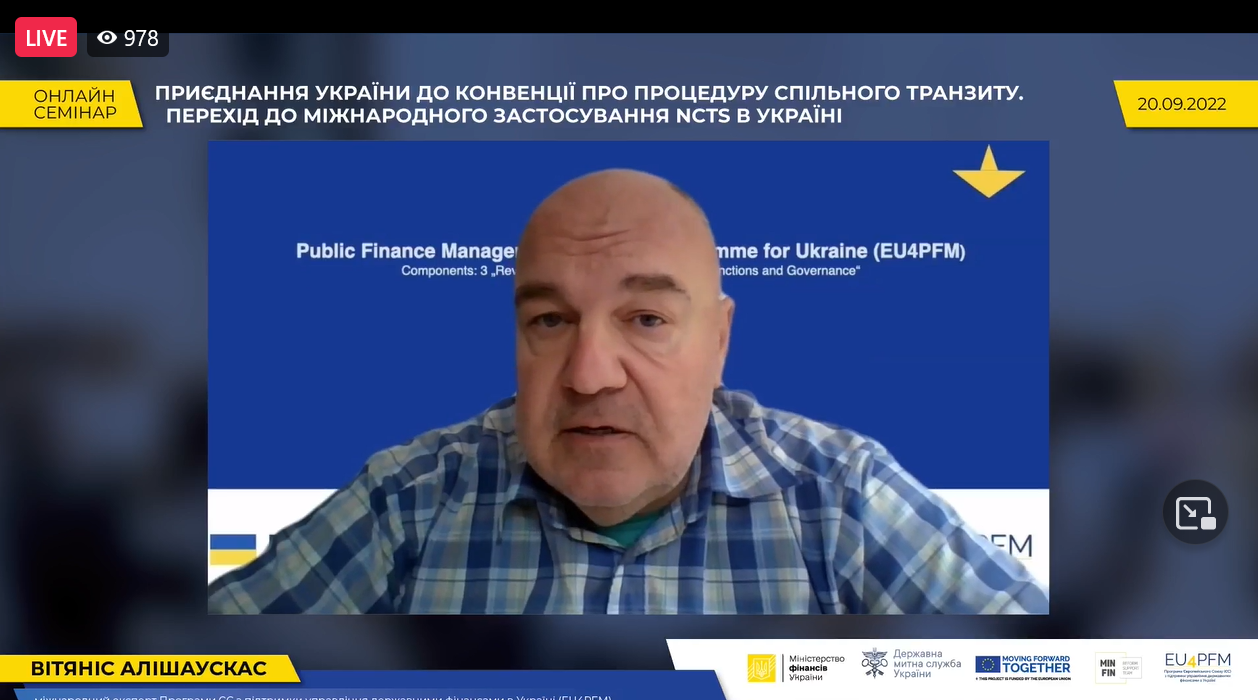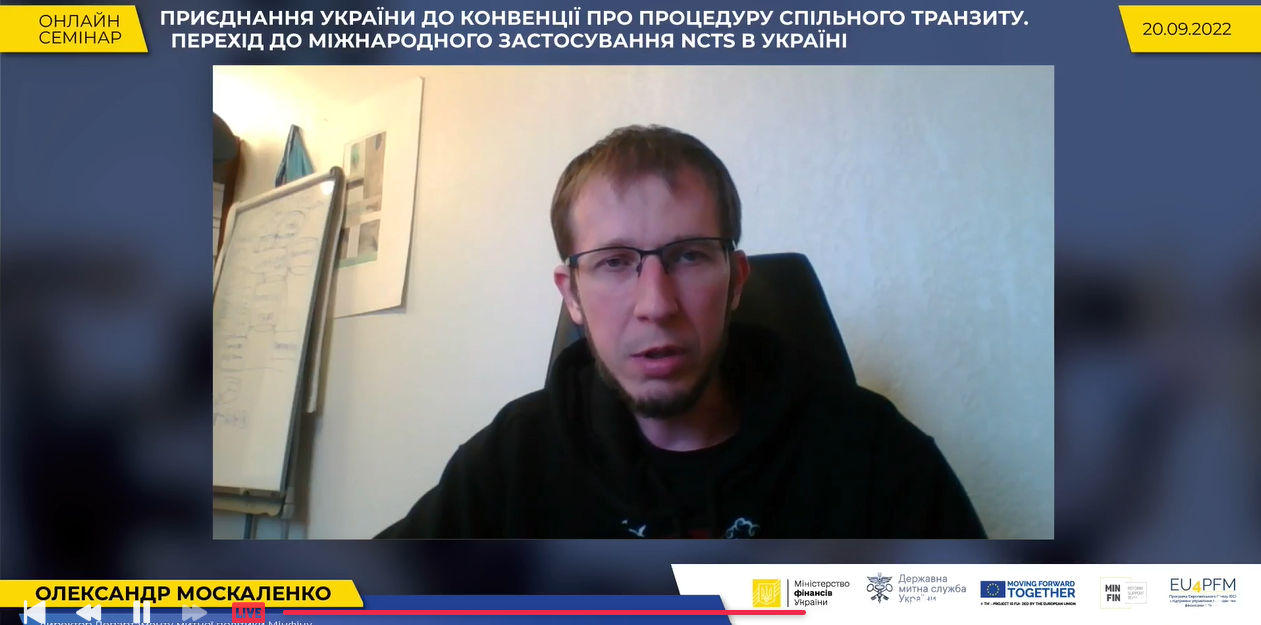1,500 business representatives took part in a seminar on Ukraine’s accession to the Convention on a Common Transit Procedure (NCTS)
On September 20, 2022, about 1,500 business representatives took part in the online seminar “Accession of Ukraine to the Convention on a Common Transit Procedure. Transition to the international application of NCTS in Ukraine”.
“From October 1, the provisions of the legislation, which we have worked on for many years and which we have talked about a lot as the practical implementation of the best European practices, will enter into force. Thus, in addition to the provisions of the Conventions, simplified customs formalities for enterprises, which today are available only to authorized economic operators, are also entering into force. Therefore, the possibility of combining special transit simplifications with some or all simplifications from the AEO program becomes available for a wide range of Ukrainian businesses, which will allow exporters, importers, customs brokers or carriers to choose their own optimal set of simplified customs formalities, similar to those used by enterprises in the European Union”, noted Oleksandr Moskalenko, Director of the Customs Policy Department of the Ministry of Finance.
Specialists and experts in the customs area, namely representatives of the Ministry of Finance of Ukraine, the State Customs Service, the Reform Support Team under the Ministry of Finance and EU4PFM were talking about new opportunities for business with the accession of Ukraine to the Convention on a Common Transit Procedure and the advantages of the international application of the NCTS with the participants of the event and answered on their numerous questions.
“The Convention on a Common Transit Procedure, the international application of NCTS is a new reality for Ukrainian business, which will begin on October 1st. We initiated this workshop to focus on practical aspects of business interest. Interest in the seminar is unprecedented. In the future, we plan to continue communication so businesses do not have any unanswered questions,” said Vladyslav Suvorov, Deputy Head of the State Customs Service.
The speakers also emphasized that the Convention does not limit Ukrainian business in any way, instead it adds modern tools to choose from, which are used by the participating countries.
“Customs is responsible for the control of goods. We in the EU strive to spend less time on control at the border and more time within the country. In Ukraine, so far, most goods go without inspection within the country – all control work takes place directly upon entry into the EU. That is why queues form at the border. NCTS solves a large part of this problem: it is possible to submit a declaration and the necessary security data to the system in advance, and after checking within the country, put the necessary seals that are recognized in the EU. Then at the border, it takes time just to read the barcode number, as it is done in a supermarket”, noted Vytenis Alisauskas, EU4PFM International Expert.
“The system of transit simplifications in the NCTS as a “puzzle” complements the customs simplifications available to AEOs and enterprises without AEO status. While maintaining business incentives for integrity, the requirements for obtaining such simplifications have been simplified: more financially stable companies will be able to benefit from advanced simplifications (for example, exemption from guarantees), and more vulnerable ones from the basic package. The entire necessary package of simplifications can be obtained after submitting a single application with a self-assessment questionnaire. The guarantors, for their part, will also rank the cost of their services: cheaper for reliable customers who have no cases of non-delivery of goods, more expensive for risky customers,” said Oksana Nikanorova, adviser to the Deputy Minister of Finance of Ukraine, coordinator of customs reforms of the Reform Support Team under the Ministry of Finance.
Everyone who wanted to could take part in the seminar. The event is a continuation of the practice of active interaction with businesses on common transit issues.
Materials of the seminar:


